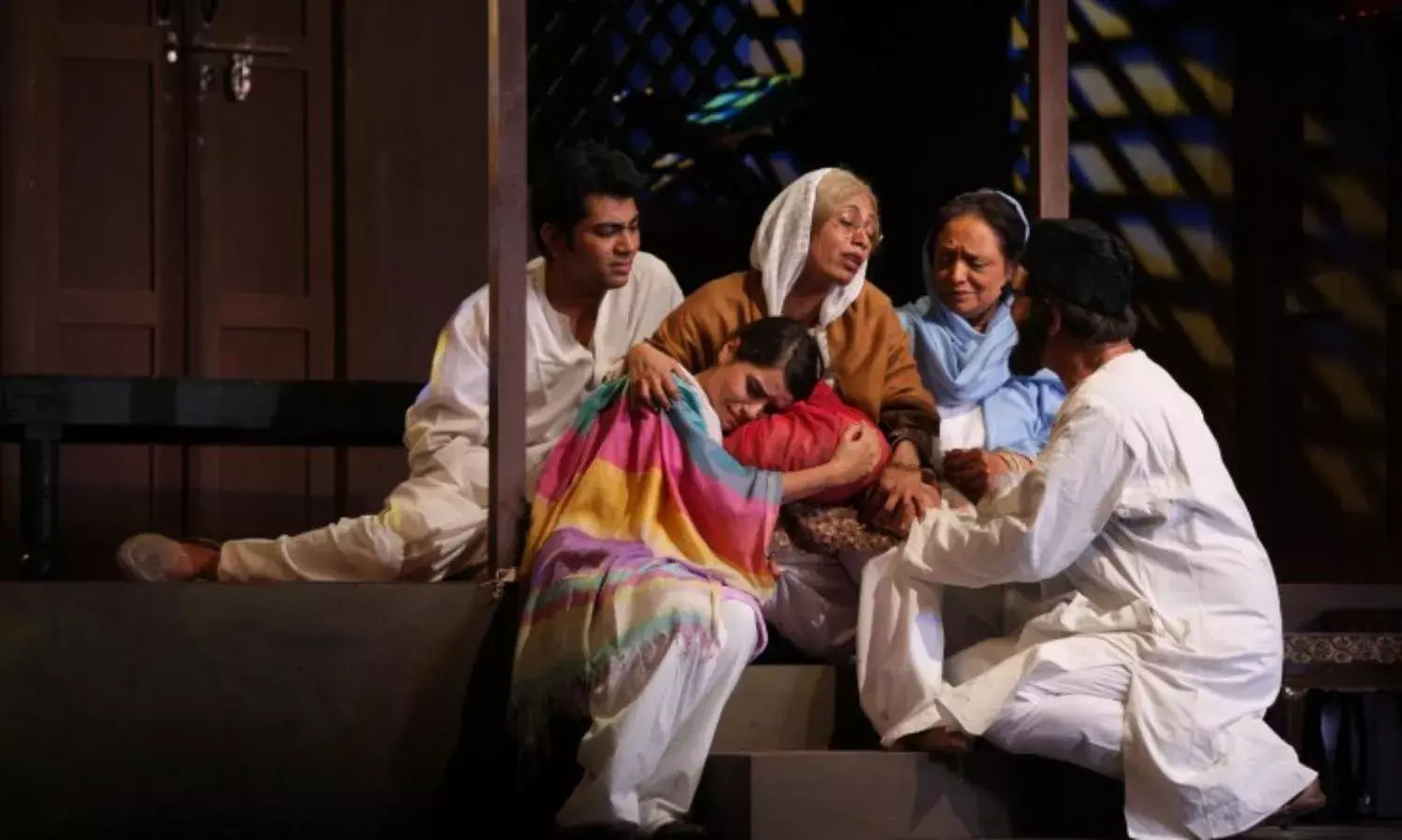Jin Lahore Nahi Vekhya.. Still a Big Hit
Humanity over politics

In an atmosphere where a virulent and vicious campaign against Muslims is being created it is good to know that the silent majority does not accept this as normal.
The best reflection of the pulse of a country are not the speeches of its politicians but it's poets and writers.
This became clear from the success of a play titled 'Jin Lahore Nahi Vekhya wo Jamya hi Nahi' as recently as August 15 when it was staged to a full house in New Delhi by the Asmita group led by noted theatre personality Arvind Gaur.
The play written by Asghar Wajahat who teaches Hindi at Jamia Millia Islamia was first performed by Naya Theatre under the direction of Habib Tanvir. It was staged in Karachi, Lahore, Sydney, New York, Dubai and many cities of India since then and translated in many regional languages.
The play is the story of a Muslim family from Lucknow that migrates to Pakistan after partition. After living in a refugee camp it is allotted a haveIi in Lahore which was vacated by a Hindu family.
However on reaching the haveIi the Muslim family finds that an old Hindu woman is still living there who refuses to leave.
However after some verbal fights over their rights the two families start living together setting an example of co-existence for the city.
But obviously there are hard-headed elements everywhere who try to fish in troubled waters and so the city's goons start harassing the lone Hindu survivor.
It is at this time that the unthinkable happens. By this time the inhabitants of the haveIi have taken to each other so well that the Muslim family shields the lone Hindu woman.
The ending is classic. When the old woman dies there are questions about how her last rites are to be performed. Setting an example for others the local maulvi decrees that her body should be cremated with Hindu rites. However after the dead body is cremated the local goons are so incensed that they kill the maulvi.
The play was first staged in 1989 when it travelled even to Lahore which has been a favourite of people everywhere for its composite culture.
In 1965 when India had crossed the borders in a war with Pakistan for the first time under the leadership of Lal Bahadur Shastri with Yashwant Rao Chauhan as Defence Minister a lot of people were against the cease fire. At that time a well-known poet Kaka Hathrasi had written 'Dilli se Lahore Tak maar liya maidan, Do thokar ki der Thi chook Gaye Chauhan."
Talking about his play, Wajahat had once said in an interview to BBC that he was inspired by a story by journalist Santosh Kumar who had come to India from Lahore after partition. He had mentioned the story of an old woman who had been left behind in Lahore and from there the other characters developed.
Asked why his play remains banned in Pakistan after its initial staging he said that there had been objections about the killing of the Maulvi in the end. But the media had lapped it up there hailing it as an example of peaceful co-existence because religion never taught hatred.
For him the challenge as a writer was to project a cross- cultural existence between a Punjabi speaking family and a Hindi speaking woman who did not understand the other's language but became each other's saviours.
Arvind Gaur, who heads Asmita theatre group staged this ever green play on August 15. He said that he did not feel any different in the audience respond despite what had been happening on the political front between the two countries.
This play is as popular as another famous play 'Amritsar Aa Gaya' based on a story by Bhisham Sahani which was staged in Mumbai on August 16, he revealed.
That in essence sums up the difference between the approach of politicians and artistes.
Politicians on both sides of the border have been whipping up frenzy to justify the war cries that they frequently raise against each other and bloody skirmishes which ultimately benefit only countries looking to sell their weapons to India and Pakistan.
Writers, film makers and theatres personalities on the other hand manage to find a humanitarian streak even in such situations as is depicted in theatre like Jin Lahore Nahi Vekhya…



